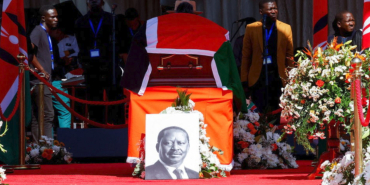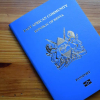Kenyan Woman Arrested in Mumbai Airport for Cocaine Smuggling

A Kenyan national was apprehended at Chhatrapati Shivaji Maharaj International Airport (CSMIA) in Mumbai after authorities discovered 1.57 litres of liquid cocaine concealed within cosmetic bottles, officials from India’s Directorate of Revenue Intelligence (DRI) confirmed.
The seized narcotics are estimated to be worth ₹15.71 crore, equivalent to approximately Ksh238 million. The suspect, whose identity has not been released, was taken into custody under India’s Narcotic Drugs and Psychotropic Substances (NDPS) Act. Authorities are currently investigating the intended recipient of the smuggled cocaine and the broader network involved in the operation.
The arrest, executed following an intelligence tip, highlights a growing trend of sophisticated drug smuggling attempts targeting Indian airports, particularly involving Kenyan nationals transiting through Addis Ababa. The DRI officers detected the concealed drugs during a routine baggage inspection. The seized liquid cocaine had been disguised within two bottles labelled as moisturising lotion, a method exploiting the similar viscosity of the substance and cosmetic products.
This incident follows a series of similar arrests in recent months, raising concerns about the escalating involvement of Kenyan nationals in international drug trafficking. On April 3, another Kenyan woman was arrested at an Indian airport carrying 1.7 kilograms of cocaine with an estimated value of Ksh225 million to Ksh300 million. Prior to this, a Kenyan woman was detained at CSMIA for smuggling cocaine worth approximately Ksh215 million.
She was found to have concealed 90 cylindrical pellets of cocaine internally after customs officials observed suspicious behaviour and ordered a medical examination.
Law enforcement agencies believe that many of the apprehended couriers are recruited by well-organised criminal organisations that exploit vulnerable individuals for trafficking purposes. The involvement of Kenyan women, in particular, suggests a deliberate recruitment strategy by these syndicates, seeking couriers who may evade initial suspicion.
These cases also highlight a significant vulnerability in African transit hubs, such as Nairobi’s Jomo Kenyatta International Airport and Addis Ababa’s Bole International Airport, which have increasingly been identified as critical junctions in global narcotics trafficking routes. Smugglers are exploiting gaps in airport security and passenger profiling systems to move illicit substances undetected. The increased frequency of drug smuggling attempts involving Kenyan nationals prompts the need for a reassessment of counter-narcotics strategies by Kenyan authorities and enhanced cooperation with international law enforcement agencies.








Add new comment